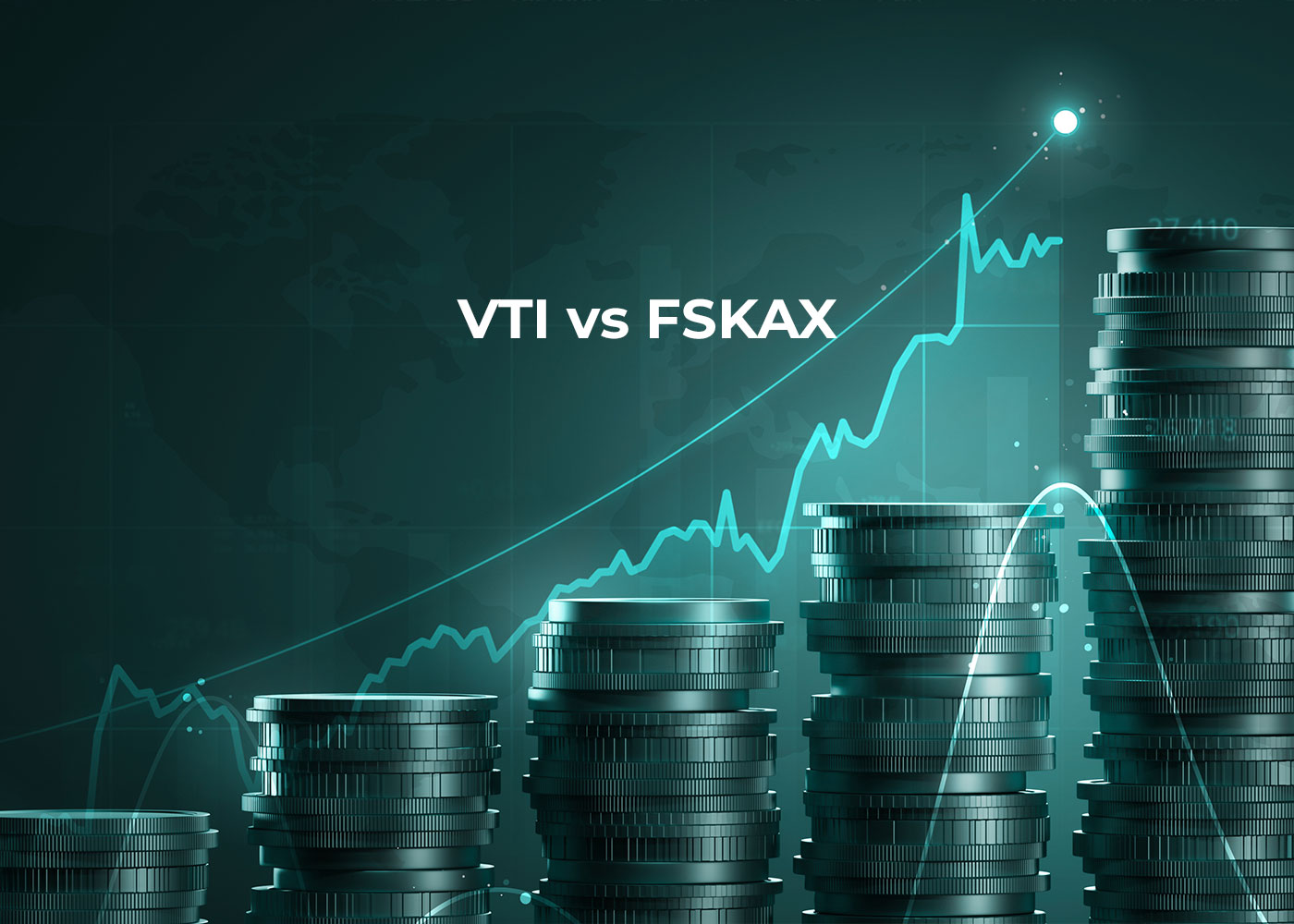Fidelity, which has recently attracted attention with its powerful investment instruments, has managed to attract the attention of many investors with its funds & pension plans and investment options. Vanguard, on the other hand, is a major player when it comes to market funds and has proven its success in this regard. These two addresses, which attract attention with their similar funds, are often compared.
We will compare two frequently researched total market funds, the Vanguard Total Stock Market ETF (VTI) and the Fidelity Total Market Index Fund (FSKAX). We can say that our priority is this: We always aim to provide you with the right information in a short time. When it comes to fund comparisons, there is a lot of information pollution on the internet. In order not to be affected by this information pollution, we will try to compare these two funds in an original & up-to-date way.

Why Is The VTI vs FSKAX Comparison Done So Often?
VTI and FSKAX are designed to provide investors with a broad exposure to the US equity market.
VTI is an exchange-traded fund (ETF) designed to track the performance of the CRSP US Total Market Index. As of our September 2021 reporting date, VTI had total assets of $238.5 billion and an expense ratio of 0.03%.
FSKAX is a mutual fund that seeks to track the performance of the Dow Jones U.S. Total Stock Market Index. As of September 2021, FSKAX had total assets of $132.3 billion and an expense ratio of 0.015%.
Comparison of Funds’ Performance
In comparing the historical performance of VTI and FSKAX, we will look at their returns, risk and volatility. Both funds are designed for broad exposure to the US equity market and have performed well over the years.
While the performance of VTI and FSKAX is similar due to comparable investment objectives, small differences in expense ratios and index tracking methods can contribute to small differences in returns, risk and volatility.
Examining The Funds Asset Characteristics
VTI and FSKAX holdings are broadly similar, as both funds seek broad exposure to the US equity market. However, there may be slight differences in sector and industry allocations as the funds track different indices.
The main holdings of both funds include well-known companies such as Apple, Microsoft and Amazon. Since both funds seek broad exposure to the US equity market, differences in sector and industry allocations are minimal.
Comparison Of Funds Fees and Deductions
Both VTI and FSKAX are managed by renowned asset management firms Vanguard and Fidelity respectively. Although the management teams of both funds are experienced and reputable, FSKAX offers a slightly lower expense ratio of 0.015% compared to 0.03% for VTI. This difference in fees may have a small impact on the funds’ long-term performance.
Current market conditions play an important role in determining the future performance of VTI and FSKAX. Factors such as economic growth, interest rates, corporate earnings and market sentiment can affect the returns of both funds.
Investors should be aware of the potential risks and opportunities associated with changing market conditions and how they may affect the performance of total market funds.
Which One Is Promising?
Given the similarities between VTI and FSKAX in terms of investment objectives, assets and management, it is not possible to predict which fund will outperform in 2023. However, FSKAX’s slightly lower expense ratio may provide a marginal advantage in terms of long-term performance. Of course, the information contained herein expresses the views of investment experts and is not intended to be investment advice. Considering such variables, taking the right steps will come to the fore as an extremely logical option.
Investors should carefully consider their individual financial objectives and risk tolerance before investing in either fund. Both VTI and FSK VTI and FSKAX offer investors a broad view of the US equity market, making them suitable for investors looking to diversify their portfolio with a single investment. When choosing between these two funds, investors should consider factors such as their preference for exchange-traded funds or mutual funds, the importance of fees and their overall investment strategy.
While FSKAX has a slight advantage over VTI in terms of fees, both funds have similar historical performance and provide a broad overview of the US equity market. Investors should weigh the pros and cons of each fund in the context of their investment objectives and overall portfolio strategy, taking into account the ever-changing market conditions that may affect future performance.
You may be interested in:
Argentinian Central Bank Prohibits Cryptocurrency Transactions
ABBC Coin Weekly Analysis And Price Prediction
Decentralized Crypto Wallets: The Key to Securing Your Digital Assets



